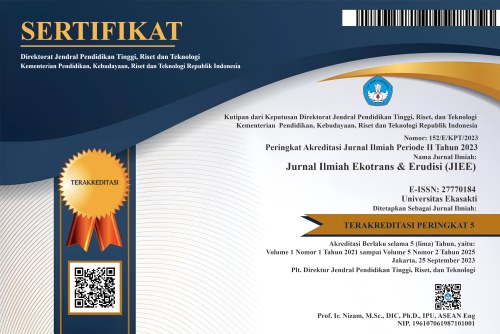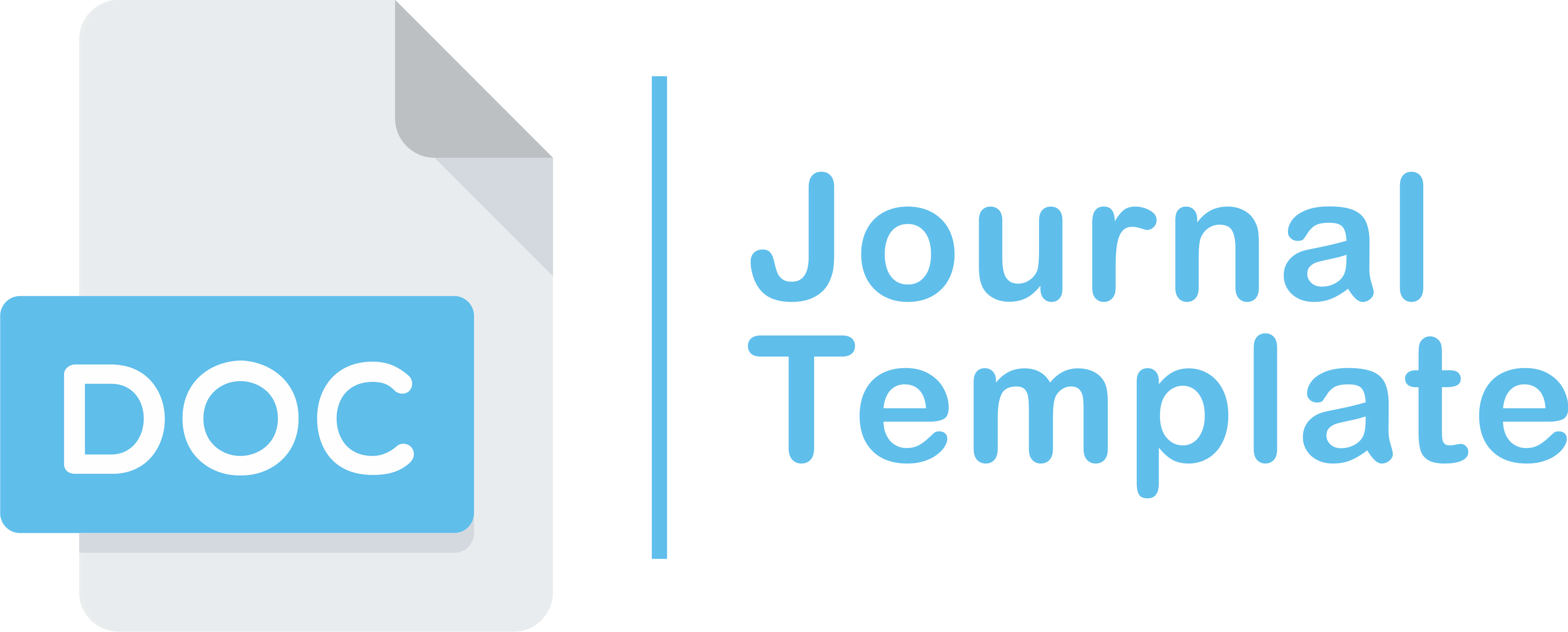Behavioral and Cultural Determinants of Corruption: Evidence from Indonesia
DOI:
https://doi.org/10.69989/pv810d72Kata Kunci:
Corruption, Behavior, CultureAbstrak
Corruption poses significant challenges in Indonesia, impacting economic, social, and political dimensions. This study investigates behavioral and cultural determinants of corruption through a systematic literature review, focusing on recent empirical studies and theoretical frameworks. Key findings reveal that institutional weaknesses, cultural norms, and individual greed are critical drivers of corruption. Institutional flaws, such as ineffective regulatory mechanisms and convoluted bureaucratic processes, exacerbate opportunities for corrupt practices. Meanwhile, cultural norms that tolerate bribery and gift-giving further entrench corruption within society. The research underscores the importance of good governance, including transparency and accountability, as well as cultural transformations through education and public awareness campaigns. By offering evidence-based insights, this study contributes to the development of anti-corruption strategies that address both structural and cultural dimensions, providing a foundation for policy-making and societal change. The findings also highlight the necessity of reforms that integrate behavioral understanding with institutional improvements to foster sustainable anti-corruption efforts.
Unduhan
Referensi
Afriyanti, D., Sabanu, H. G., & Noor, F. (2015). Penilaian indeks akuntabilitas instansi pemerintah. Jurnal Tata Kelola & Akuntabilitas Keuangan Negara, 1(1), 21–42.
Aprilia, S., & Islahuddin, I. (2019). Persepsi Tentang Faktor-faktor yang Mempengaruhi Korupsi (Studi pada Skpd di Kota Banda Aceh). Jurnal Ilmiah Mahasiswa Ekonomi Akuntansi, 4(2), 279–285.
Arnone, M., & Borlini, L. S. (2014). Corruption: Economic analysis and international law. In Corruption: Economic Analysis and International Law. https://doi.org/10.4337/9781781006139
Bellacosa, M. (2018). The fight against corruption in commercial enterprises: A comparative overview in light of the Italian experience. In Corruption in Commercial Enterprise: Law, Theory and Practice (pp. 215–233). https://doi.org/10.4324/9781315105796
Boudreaux, C. J., Nikolaev, B. N., & Holcombe, R. G. (2018). Corruption and destructive entrepreneurship. Small Business Economics, 51(1), 181–202. https://doi.org/10.1007/s11187-017-9927-x
Demartoto, A. (2007). Perilaku Korupsi di Era Otonomi Daerah: Fakta Empiris dan Strategi Pemberantasan Korupsi di Indonesia. Spirit Publik, 3(2).
Drebee, H. A., Razak, N. A. A., & Shaybth, R. T. (2020). The impact of governance indicators on corruption in Arab countries. Contemporary Economics, 14(3), 354–365. https://doi.org/10.5709/ce.1897-9254.409
Farrag, N. A., & Ezzat, A. M. (2019). The impact of corruption on economic growth: A comparative analysis between Europe and Mena countries. In Wealth Creation and Poverty Reduction: Breakthroughs in Research and Practice (pp. 266–290). https://doi.org/10.4018/978-1-7998-1207-4.ch015
Funderburk, C. (2012). Political corruption in comparative perspective: Sources, status and prospects. In Political Corruption in Comparative Perspective: Sources, Status and Prospects.
Heinrich, F., & Brown, A. J. (2017). Measuring accountability performance and its relevance for anti-corruption: introducing a new integrity system-based measure. Crime, Law and Social Change, 68(3), 359–381. https://doi.org/10.1007/s10611-017-9712-4
Kirya, M. T. (2020). Promoting anti-corruption, transparency and accountability in the recruitment and promotion of health workers to safeguard health outcomes. Global Health Action, 13(sup1). https://doi.org/10.1080/16549716.2019.1701326
Kutan, A. M., Douglas, T. J., & Judge, W. Q. (2009). Does corruption hurt economic development?: Evidence from Middle Eastern-North African and Latin American countries. In Economic Performance in the Middle East and North Africa: Institutions, corruption and reform (pp. 25–37). https://doi.org/10.4324/9780203879771-11
Mulia, R. A. (2022). Systematic Literature Review: Analisis Tren dan Tantangan Dalam Perkembangan Desentralisasi di Indonesia. Jurnal Ilmiah Ekotrans & Erudisi, 2(2), 49–61. https://doi.org/10.69989/528eg697
Nadjib, A., & Bafadhal, O. M. (2020). How social capital works: The role of social capital in acts of corruption. International Journal of Psychosocial Rehabilitation, 24(3), 2424–2433. https://doi.org/10.37200/IJPR/V24I3/PR201890
Napisa, S., & Yustio, H. (2021). Korupsi di Indonesia (penyebab, bahaya, hambatan dan upaya pemberantasan, serta regulasi) kajian literatur manajemen pendidikan dan ilmu sosial. Jurnal Manajemen Pendidikan Dan Ilmu Sosial, 2(2), 564–579.
Nisnevich, Y. A. (2016). Corruption: Instrumental conceptualisation. Sotsiologicheskie Issledovaniya, 2016-Janua(5), 61–68.
Pelizzo, R., & Stapenhurst, F. (2013). The Dividends of Good Governance. Poverty and Public Policy, 5(4), 370–384. https://doi.org/10.1002/pop4.49
Pope, J. (2003). Strategi memberantas korupsi: elemen sistem integritas nasional. Yayasan Obor Indonesia.
Prabowo, H. Y. (2024). Where is the life we have lost in living (beyond means)? An exploratory inquiry into the deceptive world of corruption and consumerism. Journal of Financial Crime, 31(6), 1540–1560. https://doi.org/10.1108/JFC-10-2023-0273
Pramono, W., Hariadi, B., Mulia, R. A., Putri, R. P., Meilina, S., & Suryaningsih, S. (2024). A Literature Review on the Impact of Legal Reforms on Administrative Efficiency in Local Governments. Jurnal Ilmiah Ekotrans & Erudisi, 4(1), 123–133. https://doi.org/10.69989/xavgc910
Rachmat, M. (2016). Corruption opportunities in dimension of regional financial management. International Journal of Applied Business and Economic Research, 14(11), 7953–7960.
Rasul, S. (2002). Pengintegrasian sistem akuntabilitas kinerja dan anggaran. Jakarta: Detail Rekod.
Riany, Y. E., Meredith, P., & Cuskelly, M. (2017). Understanding the Influence of Traditional Cultural Values on Indonesian Parenting. Marriage and Family Review, 53(3), 207–226. https://doi.org/10.1080/01494929.2016.1157561
Richelle, M. N. (2015). Skinner, Burrhus Frederick (1904-90). In International Encyclopedia of the Social & Behavioral Sciences: Second Edition (pp. 25–30). https://doi.org/10.1016/B978-0-08-097086-8.61124-8
Santos, M. R., Moule, R. K., Testa, A., & Weiss, D. B. (2024). Institutional Anomie Theory and Country-Level Public Corruption. Justice Quarterly. https://doi.org/10.1080/07418825.2024.2414810
Saputra, N., Putera, R. E., Zetra, A., Azwar, Valentina, T. R., & Mulia, R. A. (2024). Capacity building for organizational performance: a systematic review, conceptual framework, and future research directions. Cogent Business & Management, 11(1). https://doi.org/10.1080/23311975.2024.2434966
Sarto-Jackson, I., Larson, D. O., & Callebaut, W. (2017). Culture, neurobiology, and human behavior: new perspectives in anthropology. Biology and Philosophy, 32(5), 729–748. https://doi.org/10.1007/s10539-017-9574-2
Satya, M. T., & Said, L. (2016). Comparative analysis of consumer behavior across cultures. Academy of Strategic Management Journal, 15(Specialissue3), 188–196.
Syakhrani, A. W., & Kamil, M. L. (2022). Budaya dan kebudayaan: Tinjauan dari berbagai pakar, wujud-wujud kebudayaan, 7 unsur kebudayaan yang bersifat universal. Cross-Border, 5(1), 782–791.
Syarif, A. (2023). Fiscal Decentralization and Corruption: The Facts of Regional Autonomy Policies in Indonesia. Jurnal Ilmu Sosial Dan Ilmu Politik, 27(1), 60–73. https://doi.org/10.22146/jsp.69007
Trabelsi, M. A. (2024). The impact of corruption on economic growth: a nonlinear evidence. Journal of Social and Economic Development, 26(3), 953–962. https://doi.org/10.1007/s40847-023-00301-9
Xin, X., & Rudel, T. K. (2004). The context for political corruption: A cross-national analysis. Social Science Quarterly, 85(2), 294–309. https://doi.org/10.1111/j.0038-4941.2004.08502005.x
Zamahani, M. (2016). The political and socio-economic causes and consequences of corruption case study of Iran. International Business Management, 10(7), 1263–1269. https://doi.org/10.3923/ibm.2016.1263.1269
Unduhan
Diterbitkan
Terbitan
Bagian
Lisensi
Hak Cipta (c) 2024 Krismena Tovalini, Yulia Hanoselina (Author)

Artikel ini berlisensiCreative Commons Attribution-ShareAlike 4.0 International License.
Copyright Notice
An author who publishes in the journal "Jurnal Ilmiah Ekotrans & Erudisi" agrees to the following terms:
Author retains the copyright and grants the journal the right of first publication of the work simultaneously licensed under the Creative Commons Attribution-ShareAlike 4.0 License that allows others to share the work with an acknowledgement of the work's authorship and initial publication in this journal
Author is able to enter into separate, additional contractual arrangements for the non-exclusive distribution of the journal's published version of the work (e.g., post it to an institutional repository or publish it in a book) with the acknowledgement of its initial publication in this journal.
Author is permitted and encouraged to post his/her work online (e.g., in institutional repositories or on their website) prior to and during the submission process, as it can lead to productive exchanges, as well as earlier and greater citation of the published work (See The Effect of Open Access).
All materials in this site are protected by the law. It is prohibited to quote a part of or all of this website contents for commercial purposes without the permission or consent of the editors.
If anyone finds one article or more in this journal violate or potentially violate one’s copyrights, please report to us through e-mail of Principle Contact.
Legal-formal aspects of accessing any information and manuscript in this journal website refer to the provision of license Creative Commons Attribution-Share Alike (CC BY-SA). Read more about the Creative Commons Attribution-ShareAlike 4.0 Licence here: https://creativecommons.org/licenses/by-sa/4.0/.
All information available in 'Jurnal Ilmiah Ekotrans & Erudisi' is academic in nature. 'Jurnal Ilmiah Ekotrans & Erudisi' is not responsible for loss due to the abuse of information in the website.
Information
Notice about change in the copyright policy of the journal 'Jurnal Ilmiah Ekotrans & Erudisi' : "From Volume 1, Nomor 1 onwards the copyright of the article published in the journal 'Jurnal Ilmiah Ekotrans & Erudisi' will be retained by the author"
Privacy Statement
The names and email addresses entered in this journal site will be used exclusively for the stated purposes of this journal and will not be made available for any other purpose or to any other party.



























